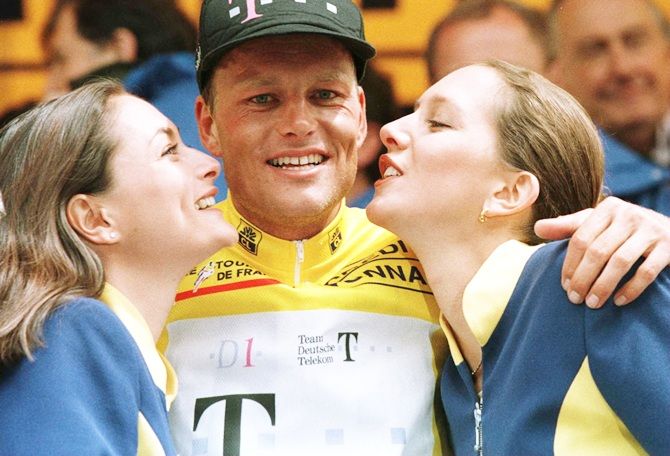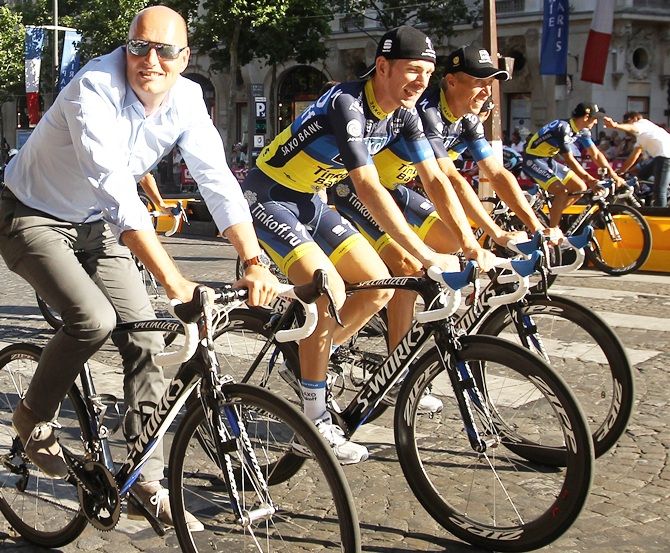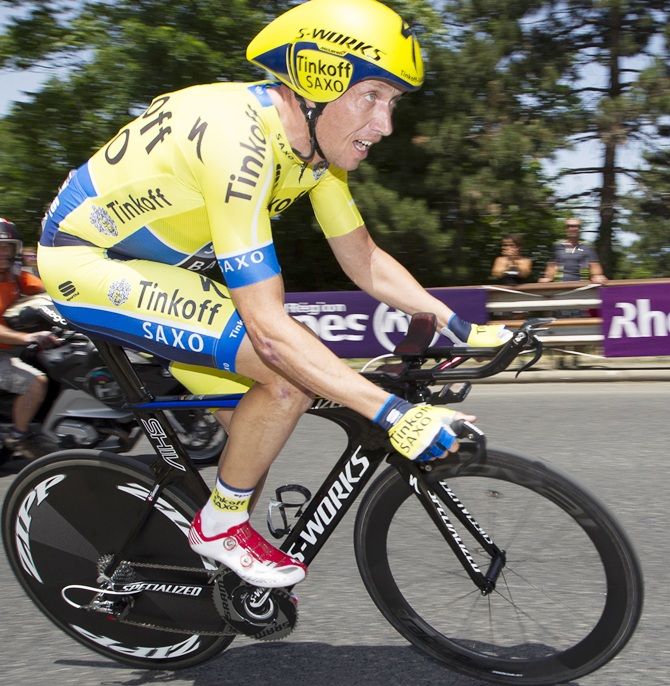 | « Back to article | Print this article |
Tour de France winner Riis knew his team was doping, probe finds

Former Tour de France winner and Team Saxo manager Bjarne Riis knew about doping in his team but failed to act, according to a damning report by the Danish Anti-Doping Authority and the country's National Olympic Committee.
The report, released on Tuesday and based on more than 50 interviews and two and a half years of work, was inspired by a US Anti-Doping Agency investigation.
That probe saw Lance Armstrong, an iconic figure in the sport prior to his dramatic fall from grace, stripped of his seven Tour De France titles for doping offences and banned from professional cycling for life.
Riis, 51, who won the Tour in 1996 and subsequently admitted having doped during his career, was sacked by Team Saxo-Tinkov in March following a dispute with new owner Oleg Tinkov.
"Management, with Bjarne Riis in overall charge, has at a minimum had knowledge of doping within the team, but failed to intervene. It is completely unacceptable," Michael Ash, director of the Danish Anti-Doping Authority, said in a statement on Tuesday.

The report also contains an allegation by Danish rider Bo Hamburger that Riis asked him in 2000 to acquire EPO, which improves aerobic capacity by artificially raising the user's red blood cell count, for German Team Telekom rider Jorg Jaksche.
Jaksche confirmed the story to investigators, but Riis rejected the allegation, saying that though he did coach the two cyclists, he did not know that Hamburger and Jaksche were doping.
Riis was not immediately available for comment.
The report recommends that night-time testing of athletes should be introduced, that blood values from tests should either be delayed or not revealed to them and that a licensing system for team managers and doctors be introduced.
"Danish leaders in the sport failed to respond to specific knowledge about their own riders' use of doping," the Authority said in a statement.
With many of the revelations contained in the report dating back more than 10 years, a statue of limitations for doping cases applies and no disciplinary charges can be brought.
Dane Sorensen admits doping early in career

Former Danish champion road cyclist and Tour de France rider Nicki Sorensen has admitted doping during the early part of his career.
"I've doped, I've admitted that fully and wholly. I'm saddened by it and I wish I could go back and undo it," Tinkoff-Saxo sporting director Sorensen told the Danish daily BT on Monday.
"It was in the early years of my career and it’s more than 10 years behind me. It was my own decision to do it."
Sorensen, four-times Danish national road race champion between 2003 and 2011, retired last year and remained with the Tinkoff-Saxo team.
He denied that his former team boss Bjarne Riis, the 1996 Tour de France champion, was involved in encouraging him to dope in any way.
A Danish Anti-Doping Authority (DAA) report is due to be published on Tuesday and comes after the US Anti-Doping Agency investigation that led to Lance Armstrong being stripped of his seven Tour de France titles and banned from the sport for life.
The report has already been criticised by Danish rider Michael Rasmussen who said testimony regarding Sorensen's doping had been omitted in an effort to protect him.
